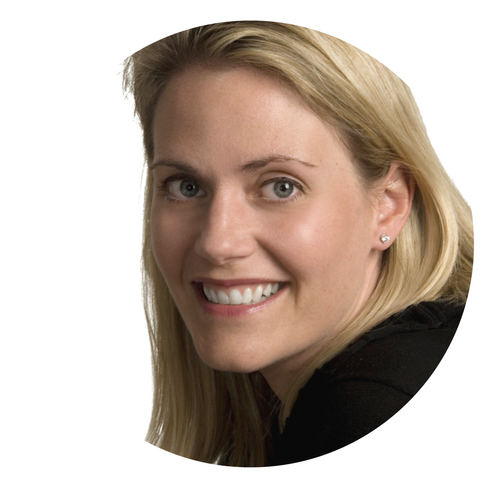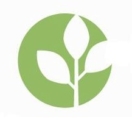To supplement or not is an often-asked question. As the quality of our lands and so our foods degrade, along with daily stress, many people may find the appropriate supplementation is necessary to recover and maintain their well-being.
What Therapy speaks with Holistic Nutritionist and Brain Health coach Julie Bolduc RHN, RMT to get our info base on supplements up to speed. We asked her about the basic ones we can all benefit from, the ones for adrenal health which is a common concern, and brain health.
Q
You are a holistic nutritionist and part of what you do is help people formulate a healthy dietary plan. What does this involve?
A
As a Holistic Nutritionist I devise a healthy program based on their specific needs and their illness/conditions. I always like to look at what foods are creating inflammation in the digestive tract and in the brain (the two are linked) and the rest of the body. Testing these foods is usually done through lab tests and once I have the results I can give my client a general outline of what foods they should stay away from. But these tests are just a guide as they are not used to diagnose a specific allergy or intolerance.
If after talking with them, I feel they need supplements, I then advise which ones are important to help support their system. This could be protein powders, pills, teas or tinctures.
I also add in lifestyle changes as well such as specific exercises, detox protocols if they are exposed to toxins, keeping hydrated, and tools and techniques to help with negative thinking or anxiety.
I don’t believe in overloading the body with a lot of supplements.
Q
What are your thoughts on supplements?
A
In this modern world we cannot get all our nutrients from food anymore; we really do need supplements. So much of our food has changed over time and is now sprayed with pesticides or is genetically modified. The soil is depleted as well, so we are not getting the nutrient content like we did 75 years ago. I don’t believe in overloading the body with a lot of supplements and I choose the ones that are most important for my clients’ body at the time I see them.

Q
Do you prefer teas, tinctures, or capsules?
A
It depends on the supplement and my client. Some are better in a liquid form as they are highly absorbable and great for those that can’t swallow capsules. Some supplements can only be made into capsules and are better for those who are sensitive to strong tastes. Teas can be important and like tinctures, they are easy to absorb.
Herbs are a good example. They can be made into a tea, a tincture or a capsule. You can choose which one is best suited for you. Veggie capsules are usually preferred rather than a hard tablet which can have a lot of fillers and binders. I myself like them all and use them all personally and advise my clients to use them.
Q
How do you know if a supplement is of high quality?
A
This is a question I get asked all the time. It is difficult for those who don’t have the training to find high-quality supplements. I tell my clients that you usually get what you pay for as inexpensive supplements are made with cheap and inferior ingredients. Some forms of vitamins are not as absorbable as others.
For example – a highly-absorbable form of magnesium is Magnesium Glycinate. It gets well absorbed in the small intestines so you know you are getting the most from the capsule or powder. Other forms may not be absorbed as well, such as Magnesium Oxide. Magnesium Citrate is also well absorbed but it also has a laxative effect so it would be good for someone with constipation.
One ingredient that is not liked by the natural health community is Magnesium Stearate. It is a lubricant, used to keep things moving on the production line and to prevent the pills from sticking together. It is a well-known carcinogen, made from cottonseed oil that is usually genetically modified or has a high amount of pesticides. I always look for this on the label and won’t buy anything with it. Fillers and binders do not add any value at all to a supplement.
Carageenan is another one we find in many food products. This is a thickening agent that can be harmful to the stomach and digestive system.
Also for certain religions or for vegans, some capsules are made using gelatin (cow or pig). Look for alternatives such as veggie capsules if you can’t have gelatin.
Q
What are good things to look for?
A
Here are some to keep in mind.
- Look for a pill that’s in was natural a form as possible, with a short ingredient list and made of whole foods
- Check for third-party testing for contaminants. For example, Nutrasea fish oil is tested for metals and other contaminants. Years ago, you could take the lot number on their bottle and track on their website where the fish came from. I don’t believe it’s there anymore but they have what’s called a PureCheck now.
- Here in Canada, companies must apply to Health Canada for an NPN (Natural Product Number). They have to show that the supplement has been tested and works for the issue they state it is for. Check for any health numbers or certifications that show the company follows regulations and rules and is reputable.
- Buy from a health food store rather than a pharmacy. The products at the pharmacy can be quite inferior to those at the health food store. You will not be able to absorb all the nutrients from a cheap supplement. Do not skimp on your health! Most health food stores also employ people trained in supplements. Ask them for help or first see a nutritionist or a naturopath to know which ones you need.
Q
Many people seem to have adrenal fatigue. Is taking supplements to support adrenal function and making lifestyle changes the most important thing to do first? Or is adrenal dysfunction a symptom of something else?
A
Yes, it does seem so many people are suffering from adrenal fatigue but unless their adrenals have been checked, we won’t really know for sure if it’s what a person is suffering with. You can check your adrenals through specific lab tests which measure how much stress hormone (cortisol) is being released at various times of the day. Preferably four times a day. A one-time blood test won’t tell you as much, which is what most doctors give to test for adrenal insufficiency. Some medical doctors also do not believe in adrenal fatigue. Naturopathic doctors and nutritionists believe it happens and help their clients before the symptoms progress further.
Most adrenal fatigue is a result of chronic stress (work, relationship, money stress etc) and it usually has been going on for a long time. The adrenals can only cope for so long in a stressful environment before they start showing symptoms of fatigue. The adrenals are a partner to the thyroid gland so when one is struggling, the other one most likely is as well. It’s always good to know how your thyroid is doing as well.
Lifestyle changes are important such as getting adequate sleep (this is a big issue for many), having a good diet that is low in sugar (or no sugar) and specific for you (see a nutritionist experienced in endocrine disorders), and low impact or minimal exercise that doesn’t stress the body too much.
It has been my experience that people think vigorous exercise will make them feel better but in fact they stress their adrenals even more. If you feel exhausted after exercising, you need to slow down and maybe pick something else to do. This could be changing your fast-paced cardio routine to walking, yoga or tai chi. If you work out everyday, change to 2-3 times a week instead.
Learning stress management techniques, like meditation, also helps and also learning to create a positive mindset.
Taking supplements is a good idea if your practitioner has told you they suspect adrenal fatigue. The ingredients in many of the adrenal formulas support the healing process of the adrenal glands and over time you will feel more energy, less anxious, and your moods will stabilize.
Sometimes taking a natural adrenal supplement and a thyroid supplement at the same time may make a world of difference in how you feel. Again do not take these unless you have been told to. Supplements are like drugs and can have side effects if not taken properly.
Q
There are many people promoting “must-take” supplements and it can be quite a long list. Why is it important to see someone trained in supplements to devise your personal plan? Is it because it is dangerous? Or more it is for efficiency?
A
Years ago in the early 2000’s, the herb Ma Huang (Ephedra) was banned in Canada. At the time it was in a supplement that I was taking for weight loss after I had my second child. Reports of death were recorded from people taking it so Health Canada banned it. But what I found out was that the people who had died were also taking other drugs, prescribed medications from doctors, and the combination proved fatal.
As a Chinese herbal remedy, Ma Huang is used for many issues, respiratory being one of them, not just for weight loss. The same goes for many supplements. Many have various uses but we need to know that many supplements can also work like a drug in the body and can interfere with medications or other supplements. Seeing someone trained in supplements is preferred so that you don’t have any side effects from them. I can’t stress this enough! Again, just because your friend is taking it, doesn’t mean you should too.
Efficiency is important as well. So many supplements need others to really work well. I learned that taking just one vitamin sometimes doesn’t really help the body until you add another vitamin with it. B vitamins are one example. Taking B6 by itself may not prove very effective, but when you add other B’s or B12, it gets absorbed much better in the body. Iron is another. Iron by itself is very hard to absorb. When you add Vitamin C, then the body has a better chance of absorbing it.
Q
Having said that, are there foundational supplements that everyone should be taking like Vitamin C?
A
In our modern society with our stresses, these are the vitamins that I find most people need:
- High quality, 3rd-party Omega-3 fish oil with EPA/DHA
- High quality, high potency, bioavailable multivitamin (especially if you don’t eat well- Vitamin C is in here)
- Magnesium in a highly-absorbable form like glycinate, malate (citrate if you are having issues with constipation)
- Vitamin D3. The liquid form is more easily absorbed than pills. The amount will depend on where you live in the world. I take 5000IU/day or more because I don’t have a lot of sun in the winter time. Getting your D levels checked is important. Low vitamin D levels are linked to depression and chronic illness
- B complex or B6 and B12. Make sure they are in methylated form.
- Probiotics, with at least 10 Billion+ to help digestion and reduce inflammation.
Q
You are a certified Brain Health Coach.
How often do your clients need brain-boosting supplements?
A
When people come to me for Brain Health Coaching, it is usually because they feel their brain is not functioning at optimal levels. Again I have to look at their diet, stress levels, amount of exercise, medications, and diagnosis like depression or ADHD. I don’t give out the same brain-boosting supplements to everyone. It is a very specific process to go through.
I took my Brain Health Coaching program through the Amen clinic in the USA. Dr. Amen sees from SPECT scan imagery that there are seven types of ADD/ADHD and seven types of Anxiety and Depression. Each one of these has a specific protocol for medication, diet, exercise, and supplements.
As I can’t prescribe medication, I work with my clients on the other aspects of the protocol. Supplements are a big part in helping the brain heal. I use different ones to help with stress levels, for sleep, and for memory and cognitive skills. Some supplements help the cells function better and create more energy.
Here are a few that are popular that you can get at the health food store (check for interactions with medications):
- Gingko Biloba for memory
- Curcumin/Turmeric for inflammation
- Phosphatidylserine (PS) for cognitive skills and memory
- Acetyl-L-carnitine for memory, dementia, Alzheimers
- CoQ10 to help at the cellular level-(the mitochondria) – for energy levels
Q
Your favourite brain health supplement is from CanPrev? Can you tell us more about this one and why you are such a huge believer in their products.
A
I found CanPrev when I was working at a clinic in Hong Kong in 2009. We were looking for some great vitamins to add to our clinic stock and I did a Google search on Canadian supplement companies. I ended up meeting the owners on a trip back to Canada that summer and so began my relationship with them!
The owners are Franco and Tana Salituro – a husband and wife team based out of Toronto Ontario. Tana was a survivor of breast cancer (I believe she had it two or three times) and during her treatments she was frustrated by the options she had for natural supplements. It sparked a desire for her and Franco to come up with their own products.
Each product is carefully made with high-quality ingredients and with the help of resident naturopaths and a scientific team. They are the company to go to in North America for Magnesium products. I have tried so many of their products and I know they are very high-quality and well-absorbed. They do not have additives or fillers/binders. They are expanding their company and I’m happy that I’m supporting a family-based business. I can personally talk to the owners on the phone – they love to hear how their products are helping others!
The MindPro supplement is one of my favourites with brain-boosting ingredients. I find the combination of the ingredients is perfect – all needed to help the brain function better. It promotes better circulation in the brain and works on a cellular level. This is important as circulation is needed for proper function and reduces the risk of dementia, Alzheimers, and even strokes.
If you have any neurological disease running in your family, I urge you to look at taking something to give your brain a headstart on healing before anything happens.
Want to boost your mood and memory? This product helps with that as well. We can change our brains and heal them with the right nutrients. Dr. Amen can see through SPECT scans if someone is on the path to Alzheimers or Dementia… even 20-30 years before it happens. Taking care of your brain is so important as it is the CEO of your body. Check out MindPro and read up on all the benefits.

Julie Bolduc RHN, RMT has over 25 years of experience in complementary healthcare, wellness coaching, and energy medicine. She is very passionate about helping her clients from around the world work through difficult health challenges as well as teaching them to access their inner power and healing abilities.
Julie is an instructor, a Brain Health Coach, and a Registered Holistic Nutritionist with advanced studies in Ayurvedic Nutrition and Herbology. She is also a Reiki Master/Teacher and was certified in the BodyTalk System in January 2004.
Julie lives in Waterloo Ontario, Canada, but lived and built up her practice in Belgium, France, Hong Kong and Singapore from 2004-2011. She continues to connect with her clients overseas. Julie specializes in the treatment of ADHD, Autism Spectrum disorders, concussions, anxiety issues, digestive disorders and hormonal issues.

